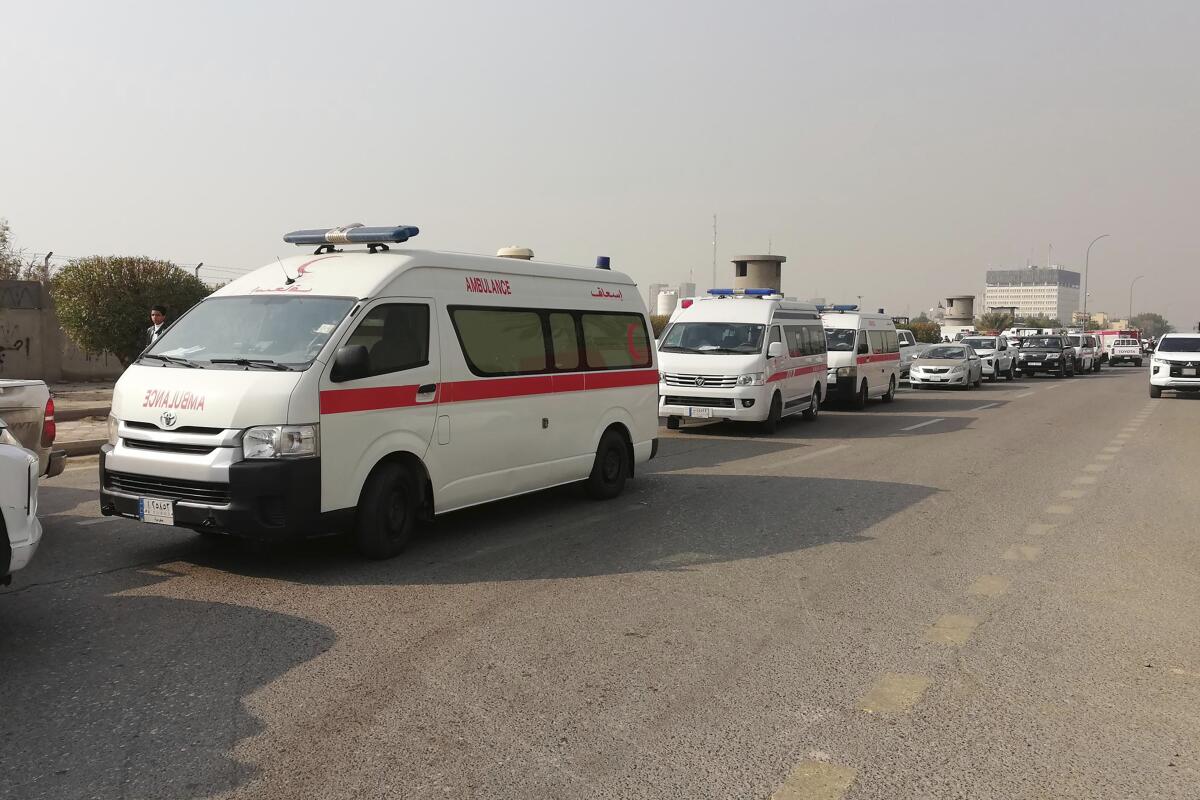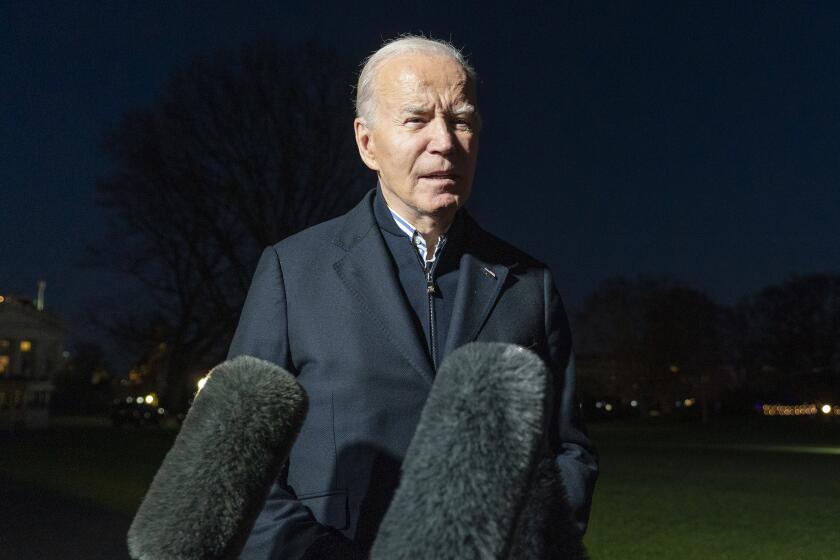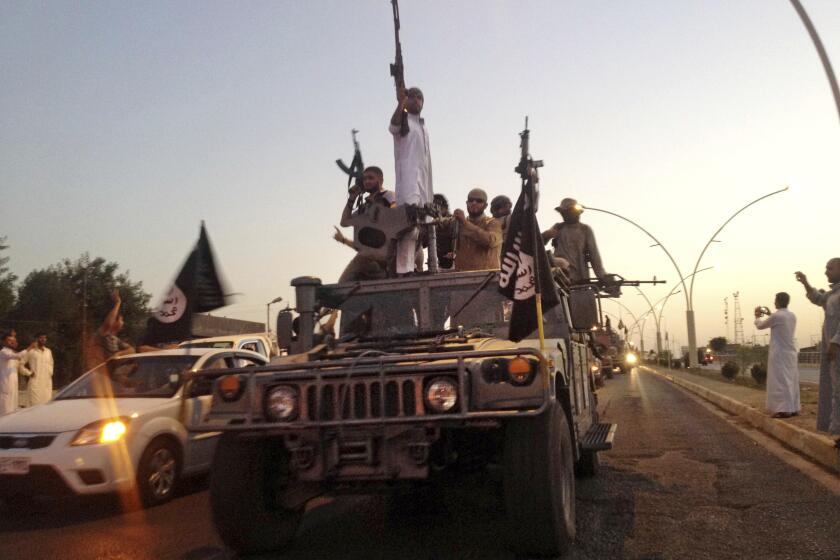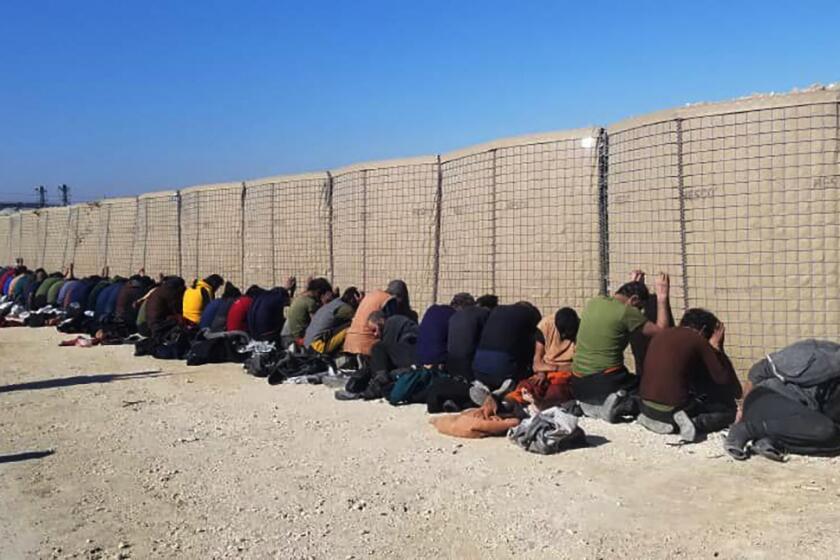U.S. airstrike in Baghdad kills Iran-backed militia leader as regional tensions escalate

BAGHDAD — A U.S. airstrike Thursday on the logistical support headquarters of an Iran-backed militia in central Baghdad killed a high-ranking commander, the organization said.
The strike came amid mounting regional tensions fueled by the Israel-Hamas war and fears that it could spill over into surrounding countries.
It also coincides with a push by Iraqi officials for U.S.-led coalition forces to leave the country.
The Popular Mobilization Forces, a coalition of militias nominally under the control of the Iraqi military, announced in a statement that its deputy head of operations in Baghdad, Mushtaq Taleb Saidi, also known by his nom de guerre Abu Taqwa, had been killed “as a result of brutal American aggression.”
A Pentagon official, who spoke on condition of anonymity to provide information that had not been publicly released, confirmed details of the strike Thursday, saying that Abu Taqwa was targeted because he was actively involved in attacks on American personnel. Abu Taqwa was identified as a leader of the Harakat al Nujaba group.
That group, one of the militias within Popular Mobilization Forces, was designated a terrorist organization by Washington in 2019.
Iraqi military spokesman Yehia Rasool said in a statement that the Iraqi army blames the U.S.-led international coalition forces for the “unprovoked attack on an Iraqi security body operating in accordance with the powers granted to it by” the Iraqi military.
Iraqi officials said U.S. strikes targeting militia sites killed one militant and injured 18. They came amid heightened fear of wider regional conflict.
The primary mission of the U.S.-led coalition is to fight Islamic State, the Sunni extremist militant group that continues to carry out periodic attacks in Iraq despite having lost its hold on the territory it once controlled in 2017. Since then, the coalition has transitioned from a combat role to an advisory and training mission.
The Popular Mobilization Forces, a group of Iran-backed, primarily Shiite militias, were also key in the fight against Islamic State after the Sunni extremist group overran much of Iraq in 2014. The umbrella group is officially under the command of the Iraqi army, but in practice the militias operate independently.
Thursday’s strike killed two people and wounded five, according to two militia officials who spoke on condition of anonymity because they were not authorized to speak publicly.
One of the officials said Saidi and another militia official were driving into the garage of the headquarters affiliated with the Harakat al Nujaba militia when the car was hit, killing both.
The Islamic State group announced the death of its little-known leader, Abu Ibrahim Hashimi Qurayshi, who led the group since November.
Heavy security was deployed around the scene of the strike on Baghdad’s Palestine Street, and Associated Press journalists were not allowed to approach the targeted area. Iraqi warplanes could be seen flying overhead.
An AP photographer was eventually allowed access to the scene, where he saw the remains of the charred vehicle.
Since the outbreak of the Israel-Hamas war Oct. 7, a group of Iran-backed militias calling itself the Islamic Resistance in Iraq has carried out more than 100 attacks on bases housing American troops in Iraq and Syria.
The group has said that its attacks are in retaliation for Washington’s support of Israel in the war against Hamas militants, which Palestinian officials say has killed more than 20,000 people in the Gaza Strip, and that it aims to push U.S. forces out of Iraq.
Thursday’s strike is likely to increase calls for a U.S. departure.
German authorities announced the arrest of a French woman who allegedly committed war crimes in Syria after joining the extremist group Islamic State.
Last week, Iraqi Prime Minister Mohammed Shia Sudani — who came to power with the backing of Iran-linked political factions but has also attempted to maintain good relations with the U.S. — said that his government “is proceeding to end the presence of the international coalition forces.”
The strike also comes two days after a suspected Israeli drone strike in the suburbs of Beirut killed Hamas deputy leader Saleh Arouri.
Asked whether Israel had any involvement in Thursday’s strike in Baghdad, an Israeli military spokesperson declined to comment.
More to Read
Sign up for Essential California
The most important California stories and recommendations in your inbox every morning.
You may occasionally receive promotional content from the Los Angeles Times.













